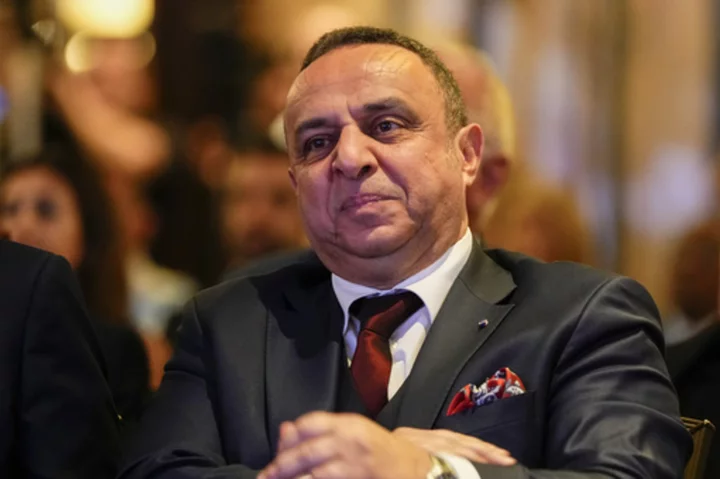BEIRUT (AP) — Banks from four Arab countries are interested in investing in Lebanon’s struggling banking sector, which was hard-hit by the small nation’s three-year economic meltdown, a top Arab banker said Thursday.
Lebanon is in the throes of its worst economic crisis in its short and troubled history that has skyrocketed poverty and inflation, and crippled its bloated public sector and infrastructure.
Wissam Fattouh, the Secretary General of the Union of Arab Banks, spoke to The Associated Press on the sidelines of the biggest regional banking conference held in Beirut since the historic economic crisis began in October 2019. Caretaker Economy Minister Amin Salam and Lebanese and regional banking officials called on their Arab counterparts to invest in the crisis-hit country and help revitalize its battered economy.
Fattouh told Saudi-owned TV station Al-Hadath in July that Jordanian and Iraqi banks have expressed an interest to buy small Lebanese banks.
“During our numerous visits to Arab countries and visits with banking leadership, we discussed the possibilities of owning and possessing some Lebanese banks that have the intention to sell,” Fattouh told the AP. He did not name the banks interested in investing in Lebanon.
As of 2022, some 61 banks operate in the tiny Mediterranean country, of which 46 are commercial banks. Many have downsized due to the crisis.
The World Bank says Lebanon's financial crisis is among the worst worldwide since the mid-19th century — a culmination of decades of financial mismanagement, corruption, and nefarious policy.
In late 2019, Lebanon's dollar shortages created a panic and run on the banks as they imposed strict withdrawal limits for depositors who kept their savings there. Under what financial experts and the World Bank described as a Ponzi scheme, Lebanon's central bank would entice commercial banks to lend dollars at high interest rates to stay flushed with cash. The banks then attracted customers to deposit their savings in their accounts at even higher interest rates.
Lebanon since then has run on a cash economy. The value of its local currency, the Lebanese pound, has lost around 90% of its value, primarily determined by an opaque black market rate that has become standard for most goods and services across the country. Depositors desperate for money have since been withdrawing their savings at exchange rates far lower than the market rate.
“The fate of those deposits at the Central Bank is still a mystery,” Fattouh explained. “So they will go for banks that don't have high liabilities and only have some deposits in the Central Bank.”
The International Monetary Fund and the Lebanese government reached a tentative agreement in April 2022, which called for an “externally assisted bank-by-bank evaluation for the 14 largest banks.” The audit never happened, as Lebanon’s ruling political parties and officials, many of whom are shareholders or owners in the banks, refused to implement any reforms.
The country has been without a president since October and its Central Bank governor stepped down on Monday.
But Fattouh said this provides an opportunity for investors.
“The investors have a perspective that once constitutional matters are back in order in Lebanon with the election of a president, that banking license will become, I'm guessing, around $200 million,” he said. “So it would cost far less for them to acquire that bank now and end up being very profitable.”

